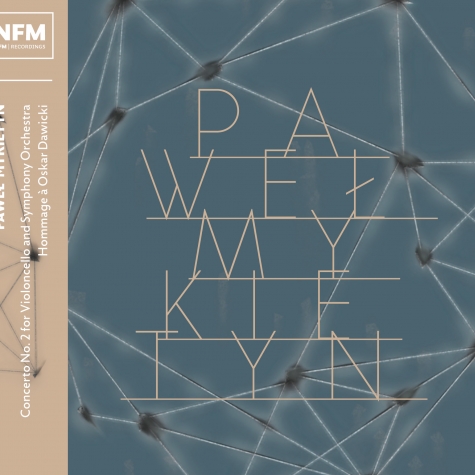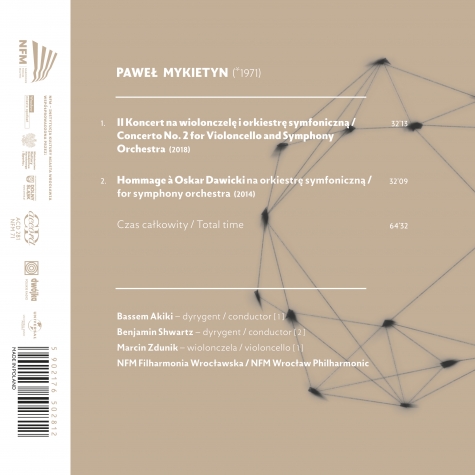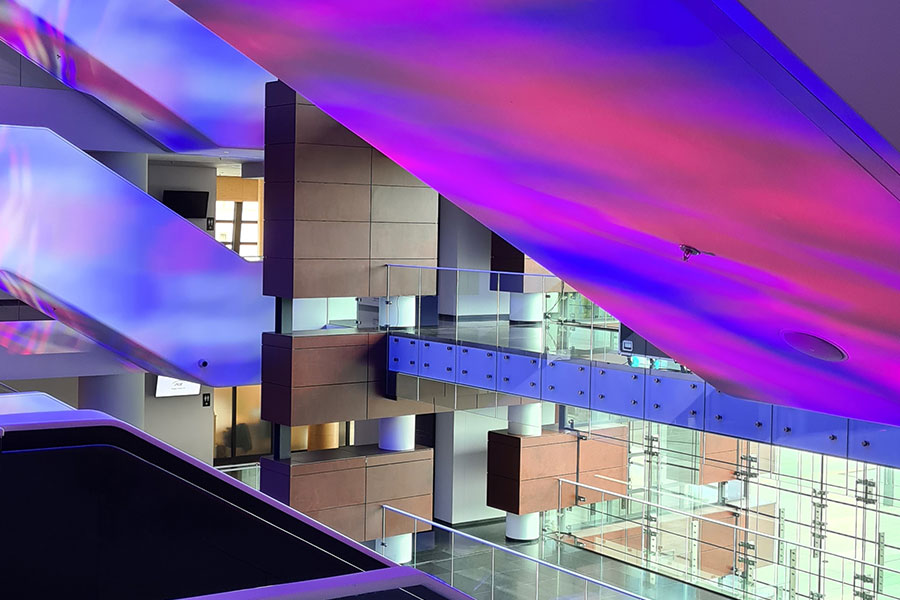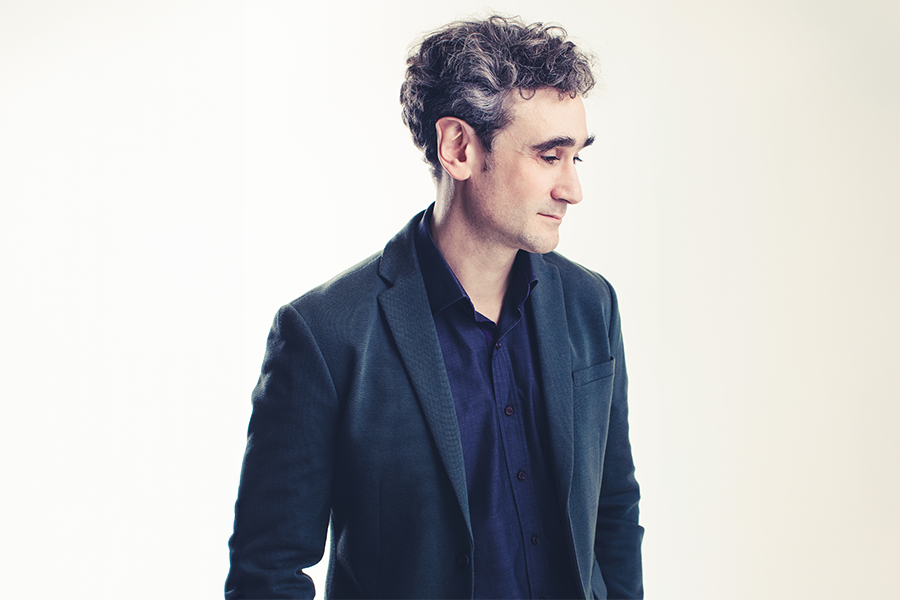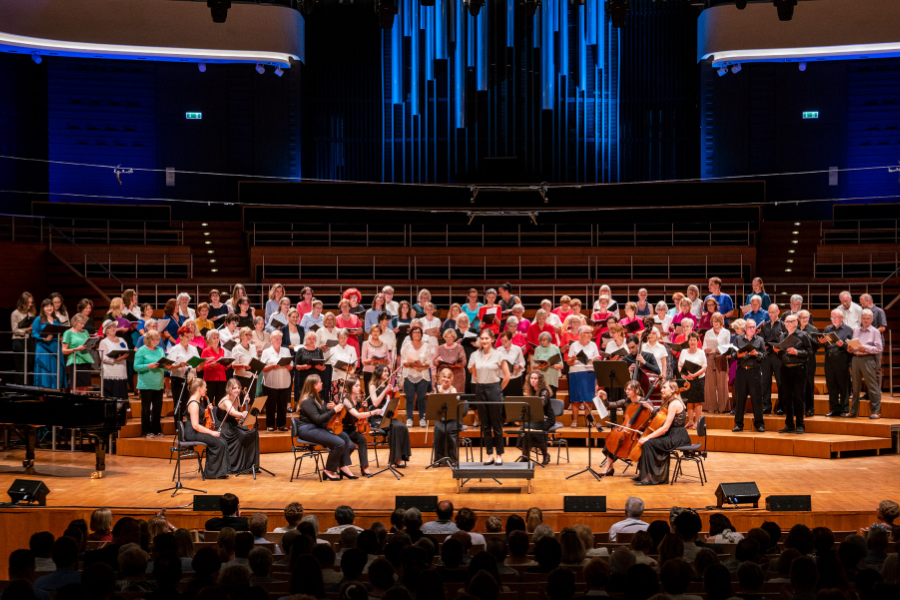Paweł Mykietyn II
This is a monographic album of works by the outstanding composer Paweł Mykietyn from Wrocław, conducted by two charismatic conductors, Bassem Akiki and Benjamin Shwartz. In addition to Hommage à Oskar Dawicki, the album includes the Concerto No. 2 for Cello performed by Marcin Zdunik, for whom this piece was written.
Album premiere: 2021
Publishers: National Forum of Music, CD Accord
Conductors: Bassem Akiki, Benjamin Shwartz
Performers: Marcin Zdunik, NFM Wrocław Philharmonic
“In this piece,” said Paweł Mykietyn about the Concerto No. 2, “I tried to synthesise my searches related to time in music. Of course, I also tried to make it communicative. I wanted to infuse some strong human emotion into this iron mathematical structure.” Judging by the reaction of the Warsaw audience gathered on March 29, 2019 at the Witold Lutosławski Concert Studio, the composer fully achieved his goal; or maybe he even surpassed it, since the actor and director Maciej Stuhr, who was present in the audience at that time, while listening to Marcin Zdunik and the Sinfonia Varsovia Orchestra led by the Polish-Lebanese conductor Bassem Akiki, saw in his mind’s eye a silent film étude (later titled simply Concerto No. 2 for Cello). Stuhr transferred his vision precisely to each second, matching the Warsaw concert recording to the screen and, in a way, created a completely new artistic form, a kind of “film made from the spirit of music”.
Having the opportunity to repeatedly listen to the studio recording of the Concerto No. 2 for Cello, with Marcin Zdunik and the NFM Wrocław Philharmonic under the baton of Bassem Akiki, raises an important question: Is this completely captivating piece by Paweł Mykietyn not a masterpiece comparable to Witold Lutosławski’s Cello Concerto?
[…]
Hommage à Oskar Dawicki for symphony orchestra is Mykietyn’s second large-scale work (after the Concerto for Flute from 2013) in which – thanks to precise mathematical calculations – he explores the dramatic possibilities of music causing the illusion of stretching or shortening time. The orchestra in this work is relatively sparse in its means: With the exception of a single oboe, the wind instruments (flutes, clarinets, horns, trumpets and trombones) are limited to a classical double line-up. In addition, the composer interchangeably employs a celesta with a piano, a percussion section and 28 strings, often treated solo. The composition is played without interruption and consists of three connected movements.
Marcin Gmys, fragment of an essay in the album booklet
- Fryderyk 2022
- Nomination for International Classical Music Awards 2023
